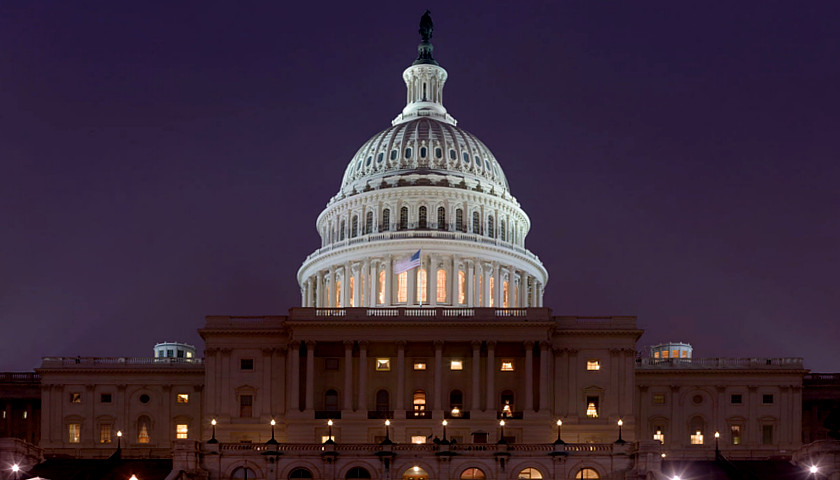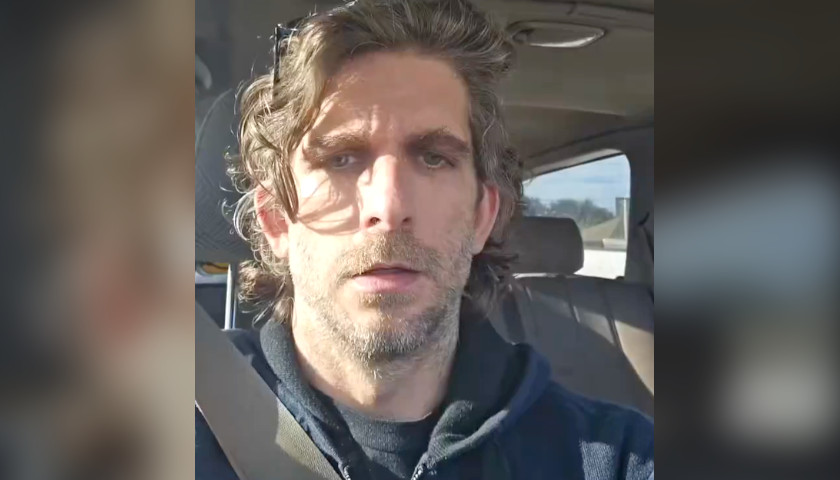by Jeffery Rendall
Strolling towards the capitol on one of our recent trips to Williamsburg, Virginia, a thought struck me as we neared the reconstructed building; so much went on inside those walls but the people in the street had nary a clue about what was happening at the time.
Sure, there were three newspapers in town (in the late 18th century), but they were somewhat crude enterprises by today’s standards, receiving and reprinting tidbits of intelligence from townspeople, passers through, other newspapers and let’s face it – plain gossip and hearsay.
Just steps away great men were debating and deciding everyone’s future yet few common folk understood what was taking place except for what the men – or the royal governor and his council – chose to divulge. Not even the town crier was much help in this regard.
Fast forward to today when practically everything that’s “official” is a matter of public record. Granted the government and its agents still keep plenty of secrets – the fallout from the Mueller investigation certainly revealed it – but we know a lot more than the Virginians of the 1760’s and 70’s did. Heck, they were about to sever ties with the Mother Country and forge a new path based largely on the say-so of a bunch of elites who told them it was the right thing to do.
And then there’s the all-too-modern creation of social media. Individuals are now endlessly commenting on everyone else’s personal business and it’s arguable there’s no such thing as a confidential fact any longer – your life’s story is everyone else’s whether you like it or not.
Even someone who lives in a cave isn’t immune – all it would take is a friend posting pictures of the living quarters for all to see on a Facebook account.
Naturally this prevalence of public information (both official and non-official) provides tremendous power to the social media companies. Not only do they control all the data they collect, they increasingly decide who sees what and where. This situation isn’t healthy and many suggest it’s time for the government to take a larger role – not to suppress content, but to ensure the tech giants aren’t unduly burdening the free flow of speech and ideas.
Ned Ryun wrote at American Greatness, “A healthy, thriving democracy is defined by rigorous debates, in the public arena, in public venues, on public platforms. The Internet is the modern-day forum or agora, a place of open assembly and venue for free expression of thought and ideas, but often times social media companies do more to restrict speech than open our society.
“We must ask ourselves: should we allow social media and tech companies to be the arbiters of this assembly and free speech? Or should in fact the duly elected representatives of the American people and the Constitution be those arbiters?
“To allow a very small handful of people to control debates, speech, and assembly online via algorithms is to in fact undermine democracy, to destroy it. As times have changed, and tech companies have changed by the choices they have made, repeatedly showing themselves incapable and unwilling to be responsible corporate citizens, it’s time to redefine their role in our society. If we do that, it will be a good step toward protecting our rights of privacy, assembly, and speech.”
No way — a conservative recommending the government get involved in regulating speech? Say it isn’t so! The Founding Fathers must be turning in their tombs at the notion Congress should make a law regulating and possibly abridging freedom of speech, or of the press; or the right of the people peaceably to assemble (through an online forum).
Of course the minds who created the Constitution and the Bill of Rights had no inkling such a thing as social media would ever exist – how could they? Social media of the day consisted of letter writing – and if you sent letters via courier or the existing postal operations it was anyone’s guess whether the contents would even arrive at their destination.
Nothing was for certain – then or now. If the government isn’t snooping in on our private conversations and exchanges a computer censor might be. If you want to keep a secret you might need to whisper it down a well at midnight – but even then there could be someone listening electronically.
It’s a sad state of affairs when nothing’s private or sacred any longer. Therefore, Ryun may be on to something — Congress could step in, especially where social media is concerned.
Ryun suggests social media be regulated to guarantee free speech but also thinks the giant enterprises should be broken up. He argues the social media companies are today’s robber barons – and he’s right. What started out (all those years ago) as a fun and easy way to share personal information with chosen friends or business colleagues has devolved into a tangled mess of ideologues deciding what content passes through their algorithms.
Who would’ve ever thought it possible? Even twenty years ago all of this was either in its infancy or hadn’t been thought up yet. Was the world better off back then? Maybe so. If we’re talking about the government delving into a new area, the prior purity may have been preferable.
Speaking of twenty years ago, there’s been a lot of talk lately about how it’s time for Democrats to let go of their worshipful attitudes concerning former president Bill Clinton.
Kyle Smith wrote at National Review, “[Nina] Burleigh’s remark [about being willing to ‘service’ Clinton in a Lewinsky-like manner because he kept abortion legal] illuminated the moral peril of blindly supporting the chief of your tribe regardless of how reprehensible his behavior may be, and those who make excuses for the often vile acts and comments of President Trump should reflect on that.
“But now that Clinton is no longer in the position of ‘keeping abortion legal’ (not to mention that we’ve had five Republican presidents since Roe v. Wade, and abortion remains much easier to obtain in the U.S. than in Europe), what possible reason can there be for continuing to treat him with soft murmurs of sympathy?
“Take off the kneepads, media. Stand up straight and tall. Barack Obama proved that there is such a thing as a Democratic president who doesn’t abuse women in his personal life. If you don’t want to look absurd when attacking the failings of President Trump, apologize for making excuses for President Clinton. See him clearly as the sleaze he is and always has been. Redefine him for future generations as a loathsome, lying hack.”
Smith is certainly correct. The establishment media’s double-standard has been exposed for all to see with its divergent and inconsistent treatment of Clinton and Donald Trump. As I pointed out last week, Trump’s purported (and unsubstantiated) questionable behavior took place before he entered politics; Clinton’s was a continuation of the same woman-abusing pattern he’d established decades earlier (and probably continues to this day since he’s so unrepentant).
A distinction? For sure. Everyone knows Trump was no saint in his first sixty-ish years but his behavior these days doesn’t give any indication he’s still the same crude loutish cad. Not only did Clinton not change his stripes — he’s now seemingly championing his past wrongs, wearing them as a badge of honor in battling ferociously to save what’s left of his legacy.
One can only imagine how all of this might have turned out if there’d been social media twenty years ago. Not even Google and Facebook could’ve devised sensors to filter out “Monica Lewinsky,” “Oval Office” and “I did not have sex with that woman.”
Readers’ comments would have been brutal, too. Additional investigations would’ve sprouted up. “Me Too” accusers would’ve emerged from the woodworks. Loyal wife Hillary wouldn’t get away with pushing her “vast right-wing conspiracy” theory because Bill’s foibles would’ve been on every computer screen and smart phone in the land. Pictures of Monica’s stained blue dress would’ve graced many an in-box.
In other words, Americans would’ve dealt with all the sleaze much earlier. Some Democrats would still rally to Clinton’s side (because he championed all their leftist causes) but perhaps the public debate would’ve eventually become more realistic regarding the Clintons.
And maybe we wouldn’t be so obsessed with Trump’s past life now. Eddie Scarry wrote at the Washington Examiner, “A year and a half after the 2016 election and the media still insist (wrongly) that President Trump has bragged about sexually assaulting women. Funny, then, that the closest thing we have to any sexual misconduct by Trump is an alleged consensual affair from more than a decade ago with a porn star.
“We were told we elected an unashamed ‘groper in chief.’ It turns out we got Trump, who, if the affair with Stormy Daniels actually happened, doesn’t want people to know about it even 12 years later!…
“Virtually everything the media has said about Trump and women is a lie… Trump might be vicious [with his comments] but at least it’s spread among all 71 genders.”
Scarry’s is an interesting piece, something we don’t see very often – namely, an outright defense of Trump’s behavior and statements (it’s well worth the read if you have time). Scarry advances an interesting point – it’s true, nothing has actually been brought forth to prove the media’s assertion that Trump was a “groper” in the past. No Paula Joneses, no Juanita Broadericks, no Kathleen Willeys, no Jennifer Flowers…
There are only Trump’s statements on the subject (such as the infamous Access Hollywood tape) … and the Stormy Daniels “affair” (which he denies ever took place – and so does Melania Trump). The media assumes all of the “talk” is true because Trump is, well Trump. But hasn’t Trump also been known to brag and exaggerate fairly often? Why is the “Me Too” woman thing with Trump true when all of the other subjects are grossly overblown?
Trump is Trump. He’s made outlandish remarks to draw attention but then always dials it back when the time is right. The president did so again recently when he offered an olive branch to the flag-protesting NFL kneelers.
Rick Moran of PJ Media reported, “In what he sees as a possible solution to the problem of NFL players kneeling in protest during the national anthem, Donald Trump says he will meet with protesting players and ask them to recommend someone whom they feel has been unfairly treated by the justice system…
“The proposal won’t go anywhere, which is exactly what Trump expects. His effort to ‘reach out’ to protesting players may or may not be genuine, but it puts the protesting players on the defensive. Trump has made the first move. If the players, as expected, spurn his advance — and probably call him all sorts of names in the process — the players look small and petty while Trump looks large and magnanimous.
“It will be interesting to see how the players react to Trump’s proposal.”
Yes indeed, it will be interesting. Trump’s made headlines lately by using his pardon power in several high-profile ways. Why not shift the “proof” onus to the disgruntled flag protesters by making them show their hands — or keep their traps shut? Fish or cut bait, right?
If Trump pardons someone who actually deserves one, he’ll be a hero. If not, he wins favor just by making the gesture. Social media will explode either way. The goodness of debate in America is undeniable…
There’s little doubt social media has changed our world – and perhaps it is time to consider having Congress take some measure of oversight on businesses like Google and Facebook to ensure our First Amendment rights are preserved. The Founding Fathers would approve.






TV stations broadcast on “Public Frequencies”, parts of the “licensing agreement” they agree to abide by requires them to give a fair and balance report.
That Agreement is called the “Communication Act”, originally passed in 1934 and has been updates several times.
“News Distortion. The Commission often receives complaints concerning broadcast journalism, such as allegations that stations have aired inaccurate or one-sided news reports or comments, covered stories inadequately, or overly dramatized the events that they cover. For the reasons noted above, the Commission generally will not intervene in such cases because it would be inconsistent with the First Amendment to replace the journalistic judgment of licensees with our own. However, as public trustees, broadcast licensees may not intentionally distort the news: the FCC has stated that “rigging or slanting the news is a most heinous act against the public interest.” The Commission will investigate a station for news distortion if it receives documented evidence of such rigging or slanting, such as testimony or other documentation, from individuals with direct personal knowledge that a licensee or its management engaged in the intentional falsification of the news. Of particular concern would be evidence of the direction to employees from station management to falsify the news. However, absent such a compelling showing, the Commission will not intervene.
https://www.fcc.gov/media/radio/public-and-broadcasting#SPEECH
If enough people complained about the “fake news” we could get the licenses of major fake news medias pulled.
Just stopping one and jeopardizing investors money in it would stop the others.